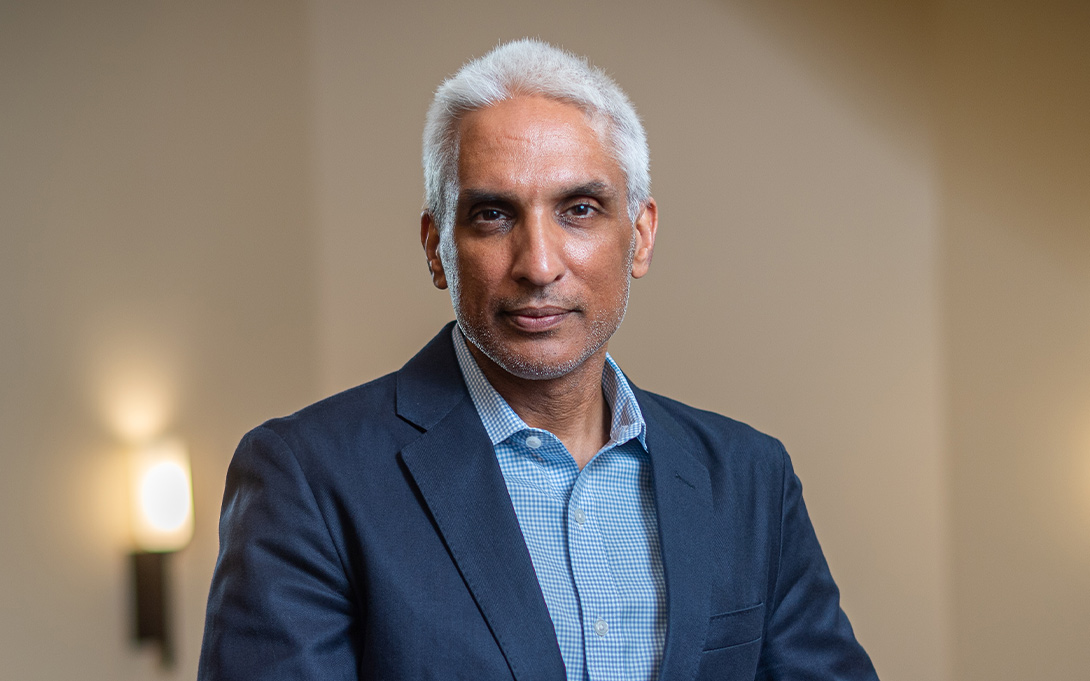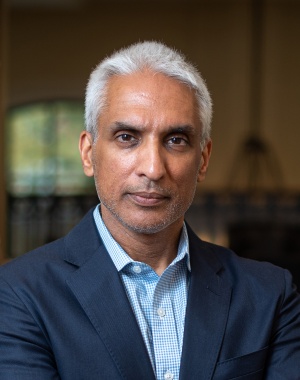
Ford School professor of practice Javed Ali has been commenting on the wide range of domestic violent actions and threats that the United States has confronted in the past week, from a school shooting to domestic and international terrorism arrests. He also wrote a commentary suggesting a new way of addressing school shootings and their aftermath.
Excerpts of the articles and appearances are below:
Kansas Woman Pleads Guilty to Training Girls to Fight for Islamic State, The Wall Street Journal, June 7, 2022
When a 42-year-old woman from Kansas pleaded guilty to working with Islamic State to run a female battalion and training more than 100 girls in how to use AK-47s, grenades and other weapons, Ali noted:
"There have been other American women who traveled with their husbands to get to Iraq and Syria at the height of ISIS's appeal in 2014 to 2016, but they generally fit a behind-the-scenes profile. She is an example of how different the ISIS model was for attacks… Perhaps ISIS was trying to provide more capability when they were losing scores of fighters in airstrikes and a ground campaign" at the time.
Tracking beyond a threat: how do we know if a threat is genuine?, Fox29, June 7, 2022
Whether a student's threat is genuine or not is left up to law enforcement, but how do we know if a threat holds weight or not and that a student won't eventually act?
Ali responded:
"Once that person is initially detained and you can't bring legal charges against them, law enforcement doesn't have this unlimited ability to scrutinize their lives unless they run afoul of the law again… The federal government or state or local law enforcement don't have much capability to deal with that on the front end. I think the answer to this or part of the answer to this could lie in the world of the technology companies and the social media companies. They should be the ones referring that activity to law enforcement and that's where I think there needs to be a better integration."
Experts: Wisc. suspect likely a lone wolf - Grievances may have led to hit list naming Whitmer, others, Detroit News, June 6, 2022
Days after authorities found Michigan Gov. Gretchen Whitmer's name on a hit list found with a man suspected in the killing a retired Wisconsin judge, experts on domestic terrorism paint the picture of an independent actor likely involved in extremist anti-government movements.
Ali said the list showed an anger toward government as a whole, not falling within party lines.
"This is a person who apparently had grievances with a full range of political actors, for whatever reasons he had in his head... It's not necessarily a bias against a political party. It's a bias against government, just writ large, whether Democrat or Republican."
"It looks like he was someone who was swimming in that ideological sea of anti-government extremism, but not acting on the direction of anyone, or under the control of the group," said Ali. "He was just what we would consider in the counterterrorism world, unless the story changes, sort of a lone wolf."
"And those are the hardest types of threats to stop, because you're dealing with a single individual who's for the most part flying under the radar.”
What if we treated mass shootings like plane crashes?, The Hill, June 4, 2022 (written with Thomas Warrick)
The approach to mass shootings needs to change. The Biden administration should set up the equivalent of the National Transportation Safety Board (NTSB) that investigates and reports publicly on the causes of plane crashes and other transportation accidents.
It’s vital to stop the idea that “thoughts and prayers” are all we can do after mass shootings. As officials with more than 40 years’ experience in homeland security, intelligence and counterterrorism, we understand the importance of first responders and law enforcement learning even from the most horrible attacks like those in Uvalde, Texas, and Buffalo, N.Y. It’s equally important for transparency and accountability that these lessons be made public as fully and quickly as possible.
The authority, expertise and integrity to establish an NTSB equivalent already exist within the federal government. The country needs independent, authoritative experts to report on what happened and – this is vital – make public recommendations about how to prevent mass killings and how to keep more people alive when a mass shooting occurs.
There is also a need for objectivity, independence and integrity to the process. Many recommendations about how to prevent active shooters are going to be controversial. Rather than shy away from such controversy, an NTSB-like approach to prevent mass shootings needs to include recommendations backed up by diligent, thorough investigative work and the evidence that law enforcement already collects. While the initial standing group could be established by executive order, the administration should seek statutory authorization from Congress when conditions allow.
The Biden administration can set up by executive order a body of empowered, resourced expert investigators to report publicly after each mass shooting what could have prevented or disrupted the attack or increased the number of survivors. Over time, these reports will support other efforts to reduce the number of children and adults killed in grocery stores and schools. We owe this to the families of those killed in Buffalo and Uvalde — and to ourselves.
